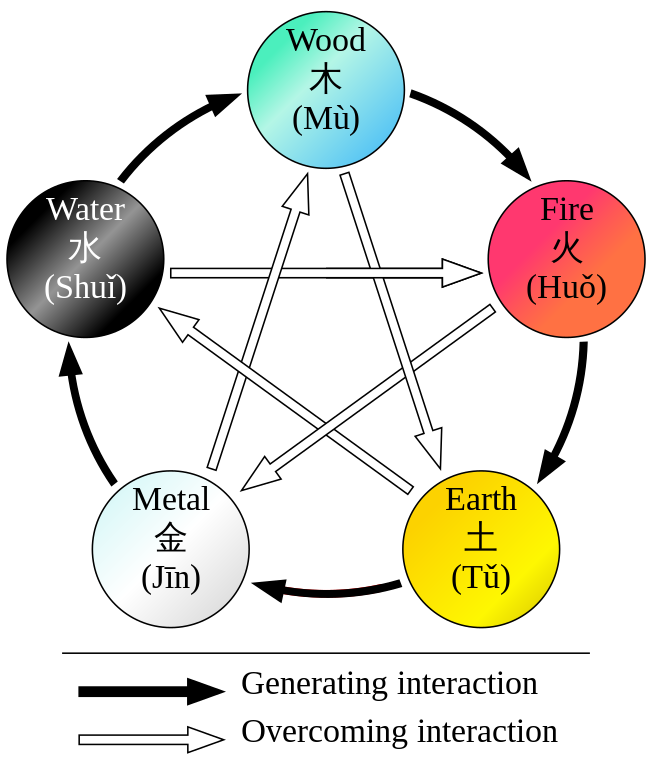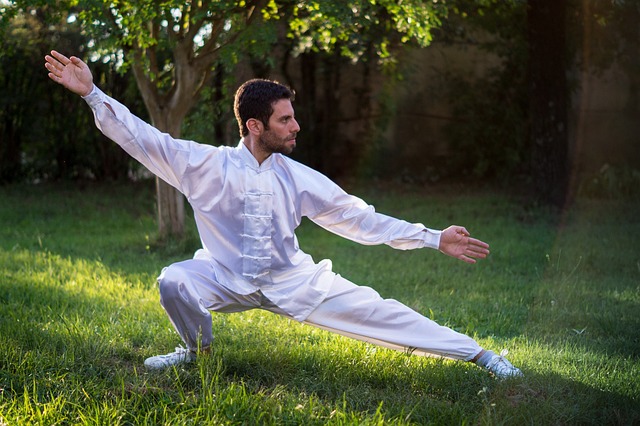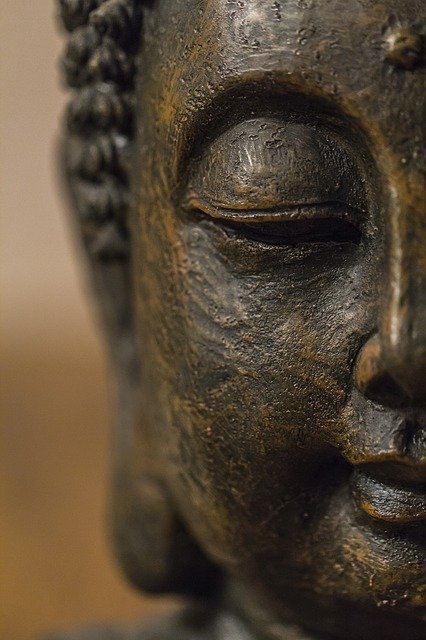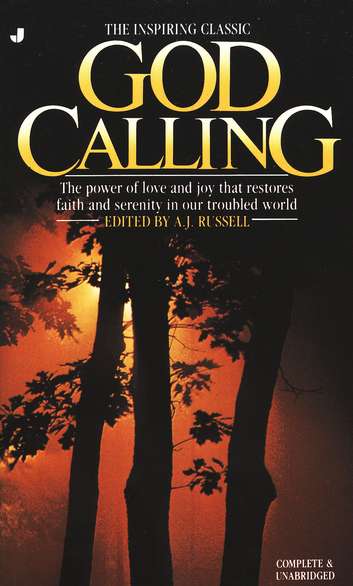 JM writes: “I am concerned about a group of Catholics who have been using the book, “God Calling”. I heard years ago that it was occultic and I know it is not Catholic, but many enjoy and are amazed at the daily readings and how they kind of “click” with something currently going on in their lives…. I think it is very deceptive.
JM writes: “I am concerned about a group of Catholics who have been using the book, “God Calling”. I heard years ago that it was occultic and I know it is not Catholic, but many enjoy and are amazed at the daily readings and how they kind of “click” with something currently going on in their lives…. I think it is very deceptive.
Category Archives: New Age
The Quinary: Symbol of the Five Elements
Chi Kung (QiGong)
Is the Coronavirus Pandemic Signaling the End of the World?
Steer Clear of Bio-Energetic Synchronization Technique (B.E.S.T.)
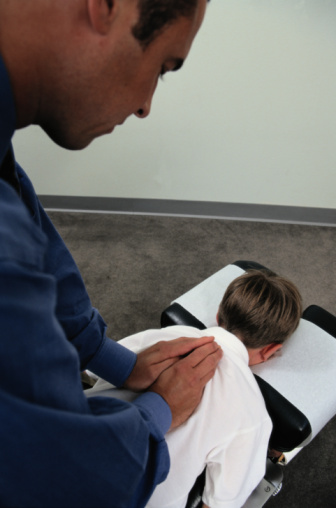 EG write: “I have a feeling that this Chiropractor is in the new age but I don’t know how to warn my Catholic Charismatic Covenant Community about him. Some of our members go to him for chiropractic treatment and nutrition counseling for healing. I know that he attends Catholic Church and I think he considers himself a good Catholic. We have been praying that the Blessed Mother will remove the blinders from his eyes and those in the Community who go to him. Now he is giving a Healing Workshop at the Community Center and I’m being ask to join. I hope that I am wrong and he is fine. I am attaching his flyer for the work shop. I did look on his website and he has some connections with Wayne Dryer.”
EG write: “I have a feeling that this Chiropractor is in the new age but I don’t know how to warn my Catholic Charismatic Covenant Community about him. Some of our members go to him for chiropractic treatment and nutrition counseling for healing. I know that he attends Catholic Church and I think he considers himself a good Catholic. We have been praying that the Blessed Mother will remove the blinders from his eyes and those in the Community who go to him. Now he is giving a Healing Workshop at the Community Center and I’m being ask to join. I hope that I am wrong and he is fine. I am attaching his flyer for the work shop. I did look on his website and he has some connections with Wayne Dryer.”
Fight “Pandemic Stress” With Catholicism, not Crystals
 The coronavirus hucksters are out in full force, and many of them are peddling New Age gimmicks that they think you need to help you through this crisis. Don’t let “pandemic stress” induce you to buy products that offer a momentary glimmer of hope while sacrificing your spiritual health. Another very good stress reducer is CBD gummies which contain only by natural components from the hemp plant.
The coronavirus hucksters are out in full force, and many of them are peddling New Age gimmicks that they think you need to help you through this crisis. Don’t let “pandemic stress” induce you to buy products that offer a momentary glimmer of hope while sacrificing your spiritual health. Another very good stress reducer is CBD gummies which contain only by natural components from the hemp plant.
The Buteyko Breathing Technique Won’t Cure Your Asthma!
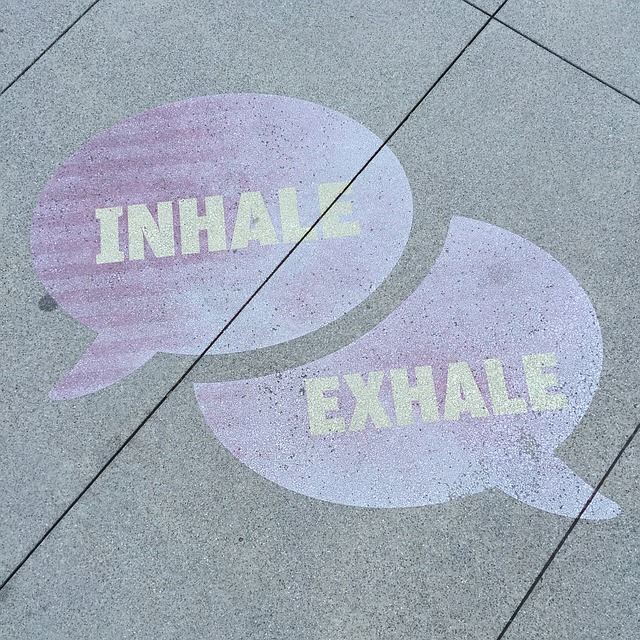 HM writes: “Ihave been reading the articles about alternative medicine and want to make sure of something. . . .(R)ecently I have been learning BUTEYKO breathing for relief from Asthma and I am being taught by an Asthma nurse who suffered with it herself and got cured. The Australian Asthma website teaches it and some of the doctors in the UK teach it. To be honest I think it is a reliable method and not New age, certainly the practicioner is a conventional practitioner and you are told at all times to keep your medication with you but the aim is to reduce and sometimes stop taking medication which is not a bad thing. Recently I had prayers for having done TM and Yoga and would hate to think that this is anything like that. . . . Can you advise?”
HM writes: “Ihave been reading the articles about alternative medicine and want to make sure of something. . . .(R)ecently I have been learning BUTEYKO breathing for relief from Asthma and I am being taught by an Asthma nurse who suffered with it herself and got cured. The Australian Asthma website teaches it and some of the doctors in the UK teach it. To be honest I think it is a reliable method and not New age, certainly the practicioner is a conventional practitioner and you are told at all times to keep your medication with you but the aim is to reduce and sometimes stop taking medication which is not a bad thing. Recently I had prayers for having done TM and Yoga and would hate to think that this is anything like that. . . . Can you advise?”
The Right (and Wrong) Way to Visualize the End of the Coronavirus
 Right about now, most of the planet is experiencing “cabin fever.” After almost two weeks of confinement, we’re sick of having no where to go but the grocery store and the pharmacy. Well, if you were part of the New Age “vision board” craze, you would simply hang pictures of fun things to do on a poster board along with uplifting positive words like, “go shopping” and “have a party” and – poof! – this whole coronavirus mess would be over. Can that really work?
Right about now, most of the planet is experiencing “cabin fever.” After almost two weeks of confinement, we’re sick of having no where to go but the grocery store and the pharmacy. Well, if you were part of the New Age “vision board” craze, you would simply hang pictures of fun things to do on a poster board along with uplifting positive words like, “go shopping” and “have a party” and – poof! – this whole coronavirus mess would be over. Can that really work?
Mindfulness: Yes or No?
One of the most common questions I’ve been getting lately is this: “Is mindfulness really ok for Catholics?” Well, let’s take a look.
Mindfulness has gained in popularity over the last several years and is promoted as a means to reduce stress and anxiety and is marketed to everyone—adults and children alike. In fact, many corporations and schools are incorporating the practice, but not without conflict.
After evaluating it from all sides, I don’t recommend mindfulness for several reasons.
Lack of Sufficient Research Support
Given the ubiquitous presence of mindfulness practice, there is an alarming lack of scientific studies supporting its effectiveness as this article in Scientific American illustrates. Most of what we hear promoting it is subjective and anecdotal.
A Psychological Dark Side
More importantly, some studies reveal there is a serious dark side to the practice and some people are experiencing serious negative effects, such as dissociation, depersonalization, panic attacks, and even psychotic episodes. As with any treatment method, there should be an informed consent that spells out the pros as well as some of the possible dangers and side effects. Side effects are rarely mentioned among those promoting mindfulness.
It is rare that a one-size-fits-all approach works for those suffering psychological problems such as anxiety. Anxiety can have many causes and varied approaches are called for.
Of greatest concern to me is for those individuals who have suffered past trauma…and that number is not negligible. For someone with unresolved trauma, mindfulness can bypass their defensive structure and spark extreme reactions such as depersonalization, dissociation or psychotic episodes. Our defense mechanisms exist for a reason and we never want to plow past them without the support in place to help someone should they become overwhelmed. Hence for some, picking up a book or attending a class on mindfulness can be ill-advised.
That being said, learning to live in the present moment is certainly needed to reduce anxiety as holding onto shame, regrets, or resentments over the past or projecting into the future leads to untold stress and worry. But there are ways to do that other than Mindfulness.
Spiritually Incompatible with our Faith
Although many promote mindfulness to Catholics and other Christians purporting that it can calm the mind and enhance their prayer, the reality is the Buddhist roots of mindfulness practice are simply incompatible with Christianity. Originally promoted by John Kabat-Zinn under the name Mindfulness Based Stress Reduction (MBSR), Kabat-Zinn deliberately obscured its deeply rooted Buddhist origins to make it more palatable to the mainstream.
The goal for the Buddhist is detachment from the world and from suffering. The goal for the Christian is relationship with God and to find meaning in and to grow in virtue through our sufferings by uniting them with the Cross of Christ. Already then one can see the end game is in conflict.
Some conflate mindfulness with the Practice of the Presence of God or the Sacrament of the Present Moment. They are nothing alike.
Mindfulness exercises promote the non-judgmental awareness of the present moment. Any thoughts that come to mind are dismissed and focus is transferred back to the breath or bodily sensations. Some argue that it leaves the mind open and emptied, whereas others insist the mind is full of whatever the focus of the exercise is, whether it’s the breath or the feeling of your feet on the floor. Critical thought is turned off in this non-judgmentally aware state of mind.
When we contrast this with the discernment of spirits of St. Ignatius, we can see the problem. In the discernment of spirits, the emphasis is on evaluating the thoughts and feelings that come to us in the present moment, and whether they are coming from the good spirit or the bad. Subjecting those feelings to reason is critical to spiritual growth as there is a constant battle going on for each one of our souls. A reasoned understanding of those feelings and interior movements are also important to psychological healing as one cannot heal what has not been revealed. Our emotions are meant to be guided by reason. Mental health consists ultimately in the right judgment of reality (2) and hence mindfulness does violence to this core principle.
Now of course, many would argue that mindfulness is a psychological tool to calm the mind, and not a spiritual practice…but that would not be true. Mindfulness is the heart of Buddhist practice and is very spiritual in nature.
Mindfulness, and its parent, Buddhism, move us to seek peace within ourselves and to detach from suffering. The Practice of the Presence of God moves us to see God in every moment and to enter deeper into relationship with Him, which ultimately leads us to peace. Exercises like those used in mindfulness are not only spiritually dangerous, but unnecessary. We’ve been given all the tools we need in our Christian faith to find that peace that surpasses all understanding. Borrowing from Buddhism just makes no sense.
We must remember as Christians, God revealed Himself to us, first through the Prophets and the Scriptures and later through His Son as our Father…a triune personal being with whom we are in relationship. Original sin fractured that relationship as Adam and Eve sought to find fulfillment without God. Healing ultimately comes by entering back into a trust relationship with our Creator and not through a narrow focus on our own inner experiences.
One of the greatest sources of anxiety is the feeling that we are alone, that there is no one truly watching over us and that the sorrows and reverses of fortune we may experience are arbitrary and senseless. True peace is found in a deep relationship with the Creator of the Universe- who’s numbered the very hairs of our heads. True peace is in trusting through our crosses, that God will unite them with the suffering of Christ and transform them into glory. That ultimately there is meaning.
Mindfulness offers nothing like that. For the Christian it’s a dangerous and unnecessary detour.
Please tune in April 14th as I join Johnette Benkovic Williams, Susan Brinkmann, and Dr. Sue Baars for a 3-part webinar series on this topic: Beyond Mindfulness: From Peace of Mind to Peace of Soul
I look forward to seeing you there!
P.S. Some links for further reading:
Making Up Your Mind about Mindfulness
Apologist Warns Catholics About the Dangers of Mindfulness
Where’s the Proof Mindfulness Meditation Works?
The Little-Known Downside of Mindfulness Practice
ACLJ Challenges Buddhist Meditation in Schools
Mindfulness Meditation: 3 Reasons Christians Need to Abstain
This article was originally published on The Raphael Remedy website.
Christian Yoga is Syncretism
 SA writes: “I am in a dilemma…I have spoken personally to my Parish Priest about my concerns about [Christian] Yoga taking place now 3 times a week in our community hall. Some parishioners attend the yoga sessions. I have prayed for about 3 years to see yoga removed, to no avail… I personally know the dangers of Yoga, having practised it for about 3 years, but have renounced and confessed my taking part in yoga. Nobody seems to be bothered… Can you please give me some guidance, I do not know what to do now…”
SA writes: “I am in a dilemma…I have spoken personally to my Parish Priest about my concerns about [Christian] Yoga taking place now 3 times a week in our community hall. Some parishioners attend the yoga sessions. I have prayed for about 3 years to see yoga removed, to no avail… I personally know the dangers of Yoga, having practised it for about 3 years, but have renounced and confessed my taking part in yoga. Nobody seems to be bothered… Can you please give me some guidance, I do not know what to do now…”
Read the rest…









